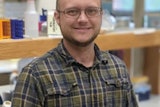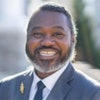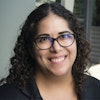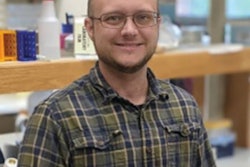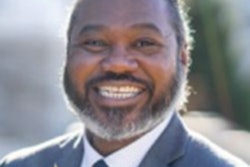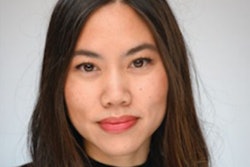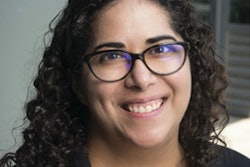Dr. Roderick L. Carey
Title: Assistant Professor, Department of Human Development and Family Sciences, College of Education and Human Development, University of Delaware
Age: 40
Education: B.A., secondary education and English, Boston College, Lynch School of Education and Human Development; Master of Education, Graduate School of Education, Harvard University; Ph.D., curriculum and instruction, College of Education, University of Maryland College Park
Career mentors: Dr. H. Richard Milner IV, Vanderbilt University; Dr. James Earl Davis, Temple University; Drs. Victoria-Maria MacDonald (retired) and Tara M. Brown, University of Maryland College Park; Dr. Maria E. Hyler, Learning Policy Institute; Dr. Laura M. Desimone, University of Delaware; Dr. Thomas Akiva, University of Pittsburgh.
Words of encouragement/wisdom: “Prioritize your scholarship. If you don’t, no one else will. Never forget why you do this work and who you do it for.”
Dr. Roderick L. Carey deftly combines theory and practice in his teaching and research with the goal of informing practitioners and institutions how to achieve better outcomes for Black and Latinx boys and young men. His school-based, qualitative, interdisciplinary research on how schools shape college-going aspirations has been extensively published.
After earning his Master of Education in human development and psychology at Harvard, Carey spent four years teaching English at urban charter schools in Washington, D.C. While the schools had college-going cultures and graduates would enroll in college, far too many didn’t stay more than a year. Beyond the obvious financial and family pressures, Carey felt there was another reason.
“Kids didn’t understand the purpose of college in their lives,” says Carey. “Some didn’t seek the types of supports they needed because they didn’t really know why they were there. Their future ambitions were misaligned.”
His goal in his doctoral studies was to build schools that better respond to the needs of kids for their presents and their futures. Developmental psychological frameworks helped him shape his perspective on how kids’ minds work at high school age. He developed a framework called Postsecondary Future Selves, which looks at how adolescents consider college, career and condition. He theorizes that when “the three C’s” align or misalign, schools can respond accordingly, which he continues to research.
His recent research also responds to social uprisings and the negative imaging that bombard boys and young men of color, for which he created a framework to understand how Black boys and young men perceive their mattering or self-worth. Carey is currently the founder/director of the Black Boy Mattering Project, a research partnership between University of Delaware and a high school where they explore the ways that Black boys articulate their perceived mattering in school and society. Through interviews, focus groups, field trips and art projects, Carey and his research team work with Black boys to unearth what factors contribute to their mattering and how to imagine it more robustly and comprehensively.
“He’s obviously investigating a very important practical question about young boys’ mattering, how they feel about themselves and how that manifests in the choices they make,” says Dr. Laura M. Desimone, director of research and professor at the College of Education and Human Development, University of Delaware.
“I think Dr. Carey is going to play an instrumental role in shaping the field, in terms of how to think about more equitable interactions in schools that can really support all students,” she adds.
Carey currently teaches three undergraduate courses: Mentor and Helping Relationships, Families and Children At-Risk, and Family Relationships (a capstone). He teaches future teachers and human service providers, to whom he imparts the importance of understanding and resisting social forces that maintain marginalization. He also advises and mentors master’s and doctoral students, including serving on several doctoral committees.
“Centralizing youth voice is a consistent thread in my research,” says Carey. “I focus on the stories, perspectives and narratives of adolescents of color as they maneuver society and school. When graduate and undergrad students come to work with me on my projects, they’re interested in doing the same thing — focus on harnessing the power of youth voice to advocate for policy and practice changes.”
Carey is launching a website on his Postsecondary Future Selves research. Through the University of Delaware Partnership for Public Education he has been moving the work from the research to practice.
“We created a series of lessons for teachers to use to inspire youth to conceptualize their college, career and condition,” Carey says. “It’s for high school educators or those working with adolescents that will help them to help kids crystallize their futures more clearly.”
